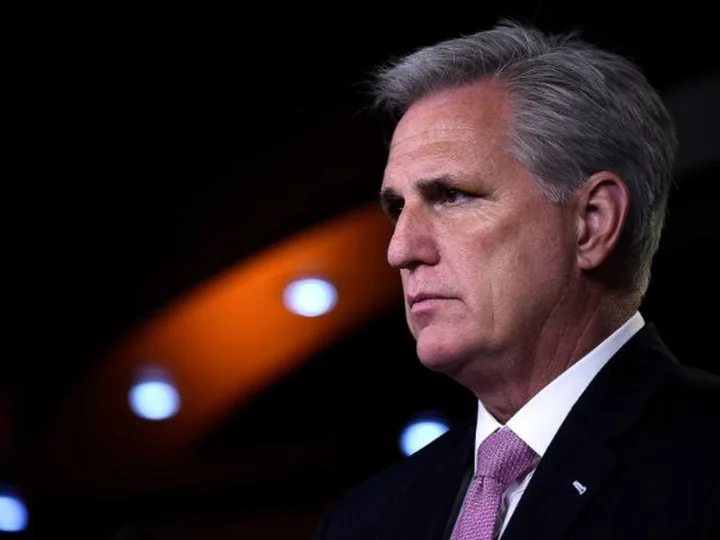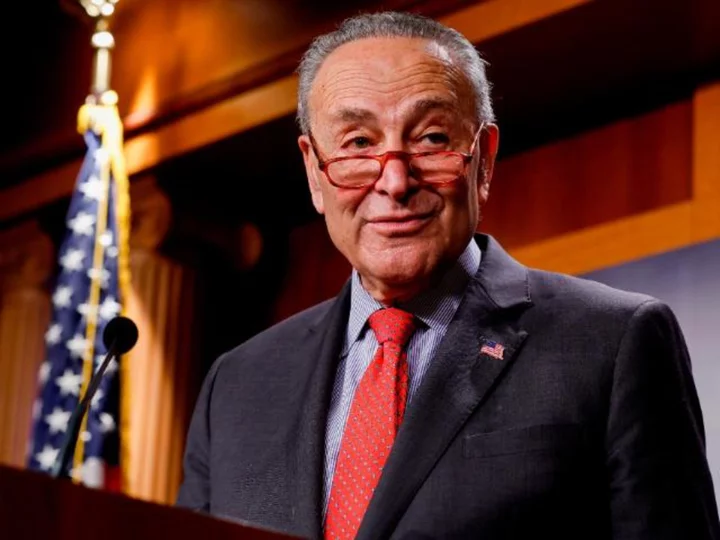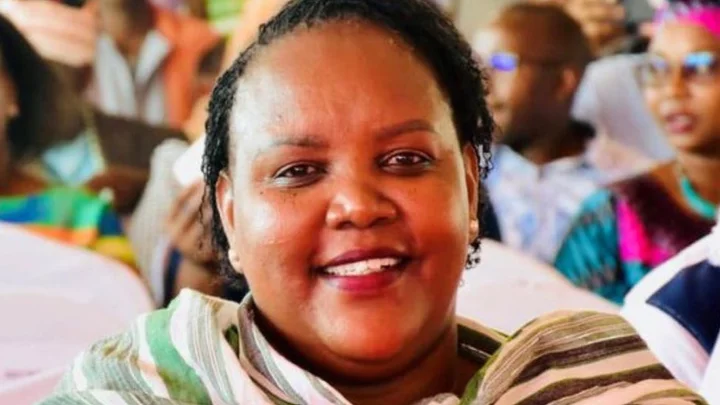House Republican leaders are scrambling to find a path forward on a critical defense policy bill that faces an uncertain future as hardline conservatives push for amendments on controversial social issues that threaten to derail the must-pass legislation.
Conservatives have demanded amendment votes on a number of contentious issues, touching on everything from abortion to transgender rights to Ukraine funding. For now, there still isn't a resolution on how leaders will handle those demands, which threaten to alienate moderate Republicans as well as Democrats.
The House is expected to take an initial procedural vote Wednesday afternoon for the National Defense Authorization Act, which sets the policy agenda and authorizes funding for the Department of Defense -- one of several hurdles that must be cleared before the bill can come to a final vote.
The vote is expected to be on a rule to proceed with floor debate with just a small -- and non-controversial -- subset of the more than 1,500 amendments that were submitted for consideration. The move buys more time for leadership to continue working behind the scenes to try to reach agreement over the outstanding demands over more controversial amendments, but lawmakers on the Rules Committee have noted they will need to report out a separate, second rule with the rest of the amendments.
The fight over amendments has once again put House Speaker Kevin McCarthy in a tough spot and underscores the challenge of maintaining unity in a fractious majority that holds only a narrow margin of control.
McCarthy made a forceful case for the annual defense bill during a closed-door party meeting on Wednesday, warning members against irrelevant amendments that could complicate the bill's pathway for passage, according to sources in the room.
The California Republican argued that if they don't pass their own bill, they will get jammed by the Senate, and reminded members that loading the bill up with non-germane amendments like a "Christmas tree" was something members of the Freedom Caucus have previously fought against in the past.
Publicly, McCarthy has stressed the importance of getting the bill done and has downplayed internal tensions. Throughout the NDAA process, McCarthy has said it is more important to get it done "right" rather than on a rushed timeline.
One of the biggest challenges for leadership now is which amendment votes to include in the next rules package. On the one hand, giving conservatives what they want may be the only way to pass a rule with GOP votes. On the other hand, if any of the more controversial amendments actually pass, it could siphon away needed Democratic votes for the final package.
So far, several hardliners are still not saying if they will back the rule vote on the NDAA slated to happen Wednesday afternoon. GOP Reps. Andy Biggs of Arizona and Matt Rosendale of Montana made no guarantees, arguing they were still going through which amendments were included in the initial rules package.
"I guess we'll find that out later on today," Rosendale said.
House Majority Leader Steve Scalise said Wednesday they have been "having conversations with (GOP Rep.) Scott Perry and others on just what the final round of amendments would be."
Republican whip, Rep. Tom Emmer of Minnesota, also said key member conversations are underway and predicted the first rule vote hurdle Wednesday will be cleared.
But Scalise warned of a late night the following day, with votes on amendments likely stretching until at least midnight Thursday.
"Ultimately, we're going to work through the process," he said. "If we can finish it all this week, we will. If it takes more time, we'll take it. The most important thing is that we get the policy right because we're talking about the priorities of funding our national defense, and it's critically important that we get this right."









